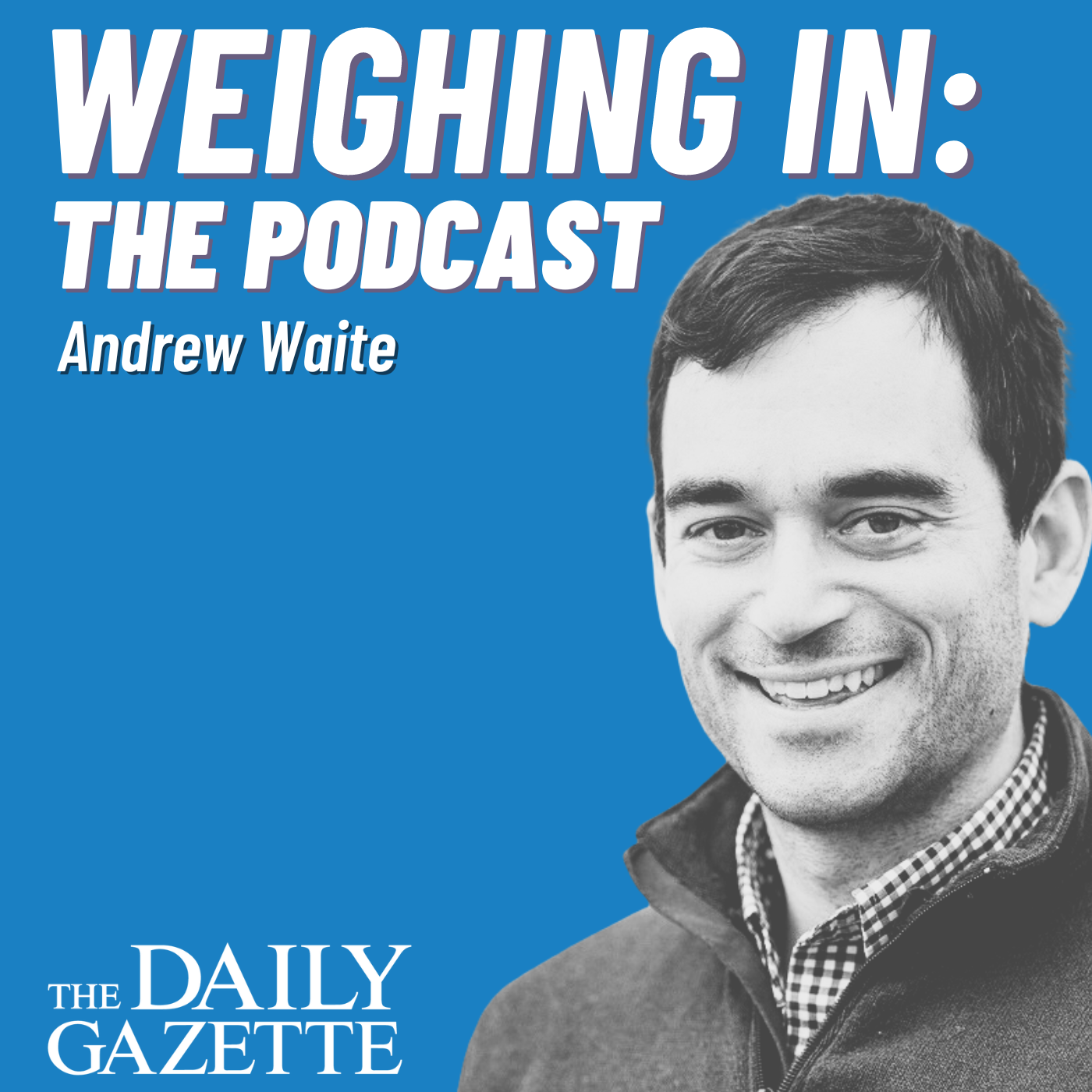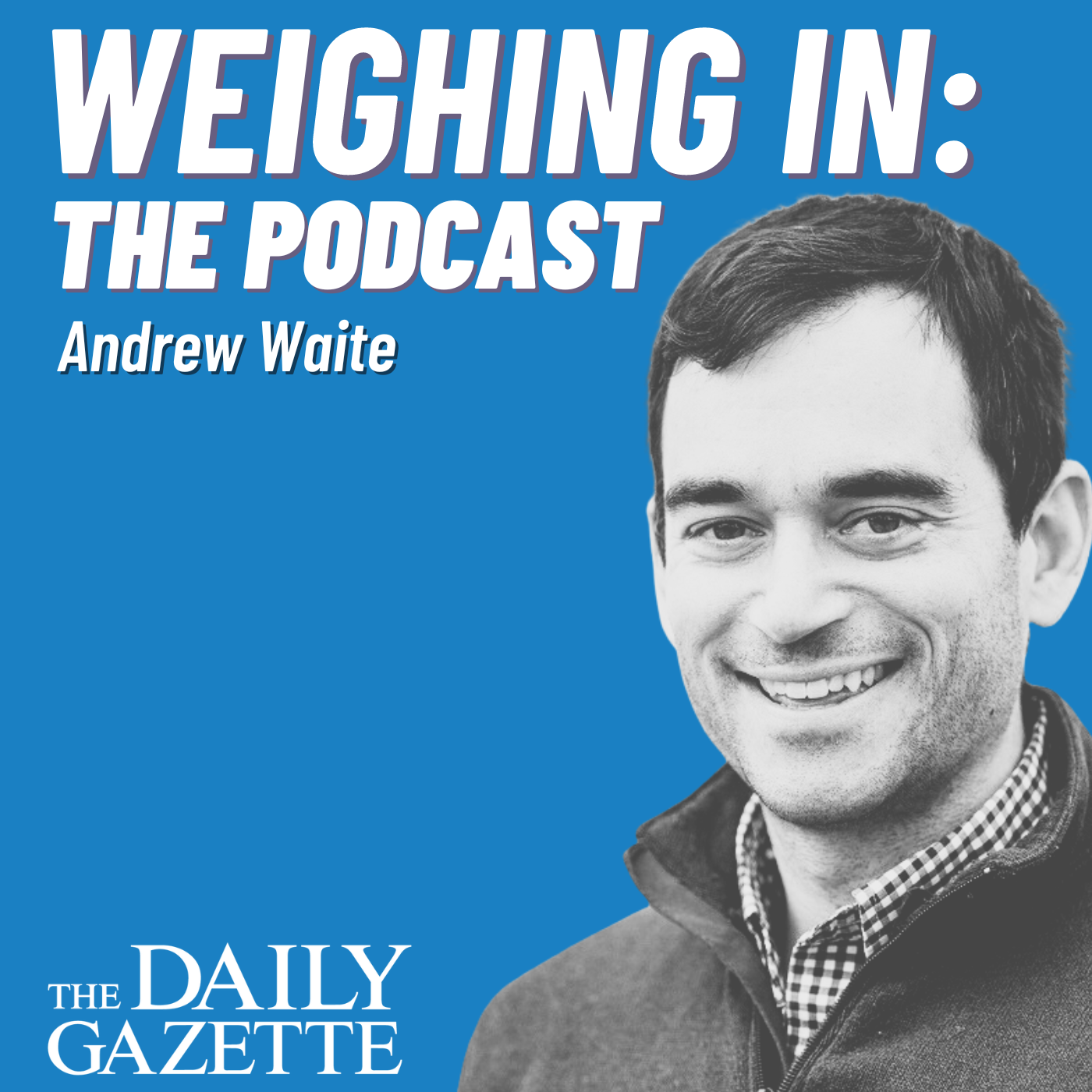Episode Transcript
[00:00:00] Speaker A: The Daily Gazette Company presents the weighing in podcast, the show that brings you inside the Daily Gazette's feature news column. Now here's your host, writer of the weighing in column, Andrew Waite.
[00:00:12] Speaker B: I'm Andrew Waite. Thanks for listening.
With the rise in streaming services in recent years, cable subscriptions, they've just pretty much been tanking. So, for instance, Pew Research found that in 2015, 76% of american adults paid for cable or satellite tv packages. And as of 2021, that number was down to just 56%. And there are a lot of implications that we could talk about with that, but we're going to focus on today is a narrow impact, and it's one on public access media. So these are public education and government media centers that host a variety of community generated content. So it could be everything from Wayne's world in your mom's basement to someone talking about world travel, or it could be a live stream of a local meeting. It's content generated from the community and is put out there for the community to access. And these stations are in trouble. And in large part, it's because their funding comes directly from cable subscriptions. So there's a pass through fee from cable subscriptions that then gets funneled to municipalities that then are able to fund public access media centers through that money. And so as the cable subscriptions have gone down, so too has the funding for these stations. And I'm sitting in one right now. I'm sitting in Openstage Media's studio. It's inside of Proctor's, and it's really the capital region's only public access media center. And they provide a variety of services, including running three public access cable channels. And in all honesty, they are in jeopardy. If cable subscriptions continue to take a nosedive and there isn't another funding source, then their sustainability just isn't there. I mean, a few years, and this place that I'm sitting in, it doesn't necessarily have a path forward, and it provides a vital service.
So, thankfully, there is a state bill that would essentially provide a new revenue stream through the streaming services. And I'll tell you a little bit more about that. So it's currently in committee, this bill, and the hope is to pass it as part of the state budget this year. But there are definitely some hurdles. But if it was to pass, then this place that I'm sitting in right now, all of a sudden its future looks a lot steadier. So here's the piece I wrote about it.
At every Schenectady City council meeting, one of Openstage Media's two employees sets up a camera inside city hall to record the proceedings. The meetings are streamed live, online and on public access television, and the meetings are also archived on a designated YouTube channel. So if somebody wants to fact check a politician, they can go to the show and say, oh, you said this, said Zebulon Schmidt, Openstage Media's station director. Streaming and archiving municipal meetings is only part of the valuable service. Openstage Media provides the small nonprofit housed within proctors records, school graduations and other community events, and oversees three public access cable channels that showcase everything from tarot card readings to conversations about religion. The organization also works with student groups to help them learn production skills, and as of last month, OpenStage Media has been providing the technical editing on the podcast you're currently listening to. Openstage Media is one of about 50 public access media organizations in New York, with a much higher concentration found downstate. But these media centers, which celebrate local culture by giving members of a community a direct outlet, face an uncertain future. Traditionally, the money supporting the state's public education and government media centers comes from cable subscriptions. Since the 1970s, cable television operators in New York have paid a 5% franchise fee on the gross receipts of their broadcasts, which gets funneled to municipalities across the state to support public access media. Other states have similar models. The problem is that cable subscriptions have dwindled in recent years as people have cut the cord. In 2015, roughly 66 million us households subscribed to services that collected a franchise fee, according to the alliance for Community Media of New York. Come 2020, nearly one fifth of those subscribers were gone.
In turn, revenue from cable franchise fees has eroded. In New York City alone, such revenue dropped from 136,000,000 in 2015 to 113,000,000 in 2020, according to the alliance for Community Media of New York. That threatens the very livelihood of public media centers like open stage media. To mitigate this, the alliance has proposed state legislation that would create a funding source from streaming and other distribution methods mirroring the revenue that has historically come from cable. Specifically, the Community Media Reinvestment act would impose a 5% excise tax on satellite streaming and any other distribution service that gets developed. It's been really short sighted to take so long to put the tax on all the different competitors to cable, said Anthony Arian, chairman of the alliance for Community Media of New York.
[00:05:25] Speaker C: This bill solves that because this bill covers anything that isn't cable.
[00:05:31] Speaker D: It might be a company that is.
[00:05:34] Speaker C: Doing cable but has decided to branch.
[00:05:36] Speaker D: Out into sending all their video over the Internet through a separate box that.
[00:05:42] Speaker C: They don't have to spend franchise fees on.
[00:05:45] Speaker D: So they've been trying to avoid them.
[00:05:48] Speaker C: So it's been, in my view, really short sighted. It takes so long to put the tax on all the different competitors to cable.
[00:05:59] Speaker B: The bill would develop a community media reinvestment fund, managed jointly by the commissioner of taxation and finance and the comptroller, where revenue from the streaming tax would be collected. This revenue would then be divided up, with 20% going directly to the state, 40% going to community media centers and 40% to local municipalities, which, unlike in some states, are not actually mandated to allocate the money collected from cable fees to public education and government media centers. If this sounds like the kind of off putting big government imposition you'd expect in New York, consider that 30 states, including Florida and Texas, already impose such a tax on streaming and other services. New York is just a little slow in catching on, Arian said. So we're anxious not only because we see that a lot of stations are in danger, we're anxious to bring New York up to speed so we as taxpayers are getting the benefit of the industry. The Community Reinvestment act bill is currently in committee in both branches of the state's legislature, and Arian hopes to get it approved as part of this year's budget, which is due April 1. Of course, part of the hurdle is coaxing state lawmakers to support a bill that has language about adding a new tax. But that's the wrong way to think about it. First of all, the extra cost would be placed onto streaming providers like Hulu and Netflix, not on viewers. The bill includes language that prevents a direct pass through onto the consumer. Secondly, even if the passthrough weren't prohibited, it wouldn't work in practice because of how streaming advertising revenues are shared at a national rate, not by individual states. New York's tax would be just one of more than two dozen states taxes imposed on these international companies. Instead, the bill should be seen as a way for New York to reap and locally invest its fair share of money from streaming services that these providers are already paying to other states. The alliance for Community Media of New York estimates the bill would immediately generate at least 250,000,000 to 500 million annually in new tax revenues for New York. Open stage media in Schenectady operates with an annual budget of about $125,000. As cable subscriptions disappear. Schmidt, who has been working in public access media since 2005, said without additional funding, it could be only a few years before open stage media which is already something of a novelty in upstate New York, may have to shudder. Schmidt shudders at such a future with the death of so many local news outlets, which has its own effort to protect its services via the Local journalism Sustainability act, we've seen what happens in the vacuum. For instance, as traditional local newspapers have folded, they've often been replaced by fake news outlets masquerading as real news sites in an effort to spread a biased message. What's to stop a similar thing from happening in community video media with verified information more fraught than ever, we should be protecting all vehicles that help to transmit it right here.
[00:08:49] Speaker E: There's a human touch to it where it's not automated. It's like we put them up, we make sure all the meetings are correct. We make sure that they're not bots or whatever happens in the next ten to 15 years. It's scary field. We don't know what's going to happen with the information you get, at least on the local level. You know that it's on the up and up and say, like, this is the meeting we saw ourselves, we recorded, and it's going up. And there's a person that you can call and say, is that meeting the meeting? Because it doesn't look like the lips are matching. No, that is the meeting, and this is the thing. So there's a human component to government access and local communities talking to each other.
[00:09:33] Speaker B: Think about it. Politics have become scary enough on their own in some cases. Limit or compromise access, and things become even more frightening.
That's it for this week's edition of the Weighing in podcast. I'm Andrew Waite. Thanks to Zeb Schmidt and Jeremy Klo, who handle the technical editing for this podcast. Take care.


